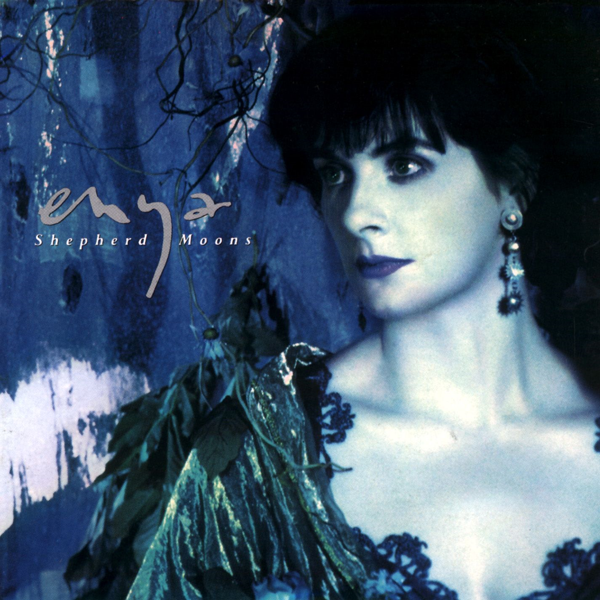4. EnyaShepherd Moons

I think this choice will surprise most people but, for some, it will make perfect sense. I’ve always loved Enya’s music and particularly the way it’s been produced: the tracking of dozens and dozens of vocals over the top of one another creates this otherworldly character to her voice and melodies. Whatever way they mic her and subsequently use the reverb and EQs – there’s a magical sheen that comes out of that.
It made me think about how the air is manipulated in my own music. Recently I started to pinpoint the breath sounds coming in and out of my nose by having microphones inches away from my face on either side just to pick that up. That allows me to purposefully do something that sax and clarinet players are taught not to do in school: venting. It’s when you open the sides of your mouth very slightly and let the air pass outside to create a sound of airiness. I started phasing that venting sound back and forth, right to left, to get a stereo sweep in certain parts of the music.
I’m curious to know how you think this album’s production holds up today. Do you think it’s dated?
So many things are dated by production – even Doolittle is dated! I certainly don’t think that’s a hinderance to someone either benefitting from it as music or learning from it from a technical perspective. A lot of the music we may think of as dated also has the added strength of being so indicative of the time for particular listeners, so datedness is actually a positive in terms of personal experience.
I think because Enya’s music has been so commercially successful – and because it was labelled ‘new age’ – she wasn’t always taken seriously. Now it seems like that has faded away a bit and people can approach it in a new light.
A bit, yeah. Our taboos in mainstream music are largely bullshit, I think. It’s just blanket statements applied to cultures that people don’t take the time to rethink or investigate at all. Instead they just say, ‘Oh, I don’t like that. I’ve heard that’s crap.’ Soft reasons. I can’t tell you the amount of people who come up to me after shows or have written to me to say, ‘I always hated the saxophone, it’s such a bullshit instrument, but you’re different.’ [laughs]
It’s one of those things where I’m sure if certain musical taboos had not been so heavily propagated through mainstream culture, especially in the 90s, then people wouldn’t be saying that. But that is the case. People have these preconceived notions and mostly I think they’re based on nothing.


